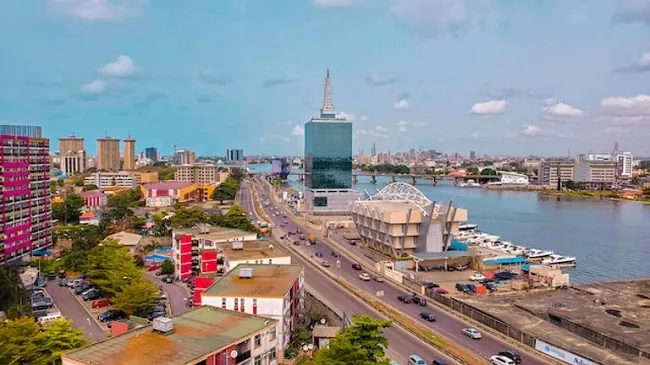Nigeria is the largest economy in Africa, yet its wealth is not evenly distributed across its 36 states.
Some regions enjoy thriving industrial bases, oil wealth, and vibrant trade hubs, while others depend largely on agriculture and federal allocations.
Recent GDP rankings reveal which states are truly driving Nigeria’s economy.
From Lagos to Niger, these are the ten richest states in Nigeria by Gross Domestic Product (GDP) — and what powers their prosperity:
1. Lagos State — The Economic Heart of Nigeria
GDP: ₦41.17 trillion (≈US$102 billion)
Lagos remains far ahead of every other state in economic output. Often called the “heartbeat of Nigeria’s economy,” it is home to the country’s busiest seaports, its largest international airport, and the headquarters of most multinational corporations operating in Nigeria.
The state thrives on trade, finance, technology, entertainment, real estate, manufacturing, and transport. Its expanding tech ecosystem, centred around Yaba and Lekki, continues to attract global investors. Despite its small landmass, Lagos contributes over 20 percent of Nigeria’s total GDP — a testament to its industrial and commercial dominance.
2. Rivers State — Oil Powerhouse
GDP: ₦7.96 trillion (≈US$19.27 billion)
Rivers State stands as Nigeria’s second-richest economy, largely due to its oil and gas resources. The state capital, Port Harcourt, is known as the “Oil City” and hosts major petroleum companies, refineries, and export terminals.
Beyond petroleum, Rivers also boasts thriving industrial and service sectors. The government has recently focused on diversifying into agriculture and tourism, seeking to balance its dependence on oil with more sustainable sources of growth.
3. Akwa Ibom State — Expanding Beyond Oil
GDP: ₦7.77 trillion (≈US$19.25 billion)
Akwa Ibom, another Niger Delta state, has steadily grown its GDP through oil revenues, industrial development, and infrastructure expansion. The state has invested in new roads, a deep seaport project, and agricultural value chains such as palm oil and fisheries.
Its coastal position and relative political stability make it attractive for tourism and investment. Akwa Ibom’s efforts to diversify beyond oil are starting to pay off, positioning it among Nigeria’s top-performing subnational economies.
4. Imo State — A Blend of Commerce, Oil and Industry
GDP: ₦7.68 trillion (≈US$19.02 billion)
Imo State’s economy is a mix of oil wealth and entrepreneurship. Located in the South-East, it hosts numerous small and medium-scale enterprises engaged in manufacturing, trade, and agriculture.
In recent years, Imo has attracted attention for its fast-growing business class, supported by new infrastructure and youth entrepreneurship programmes. The oil deposits in its territories also contribute significantly to its overall GDP, keeping Imo among Nigeria’s top five richest states.
5. Delta State — A Strong Industrial and Agricultural Base
GDP: ₦6.19 trillion (≈US$15.33 billion)
Delta is another key oil-producing state in the Niger Delta, but its wealth goes beyond crude. The state has built a diversified base in agriculture, trade, and manufacturing. With cities like Warri and Asaba serving as commercial hubs, Delta also benefits from a well-connected transport network and industrial estates.
Efforts by the state government to promote gas utilisation, agro-processing, and renewable energy have made Delta an increasingly dynamic economy.
6. Anambra State — Commercial Hub
GDP: ₦5.14 trillion (≈US$12.73 billion)
Anambra’s strength lies in trade, manufacturing, and commerce. The state’s largest city, Onitsha, hosts one of the biggest open-air markets in West Africa, serving as a key distribution point for goods across Nigeria and neighbouring countries.
The industrial clusters in Nnewi — often called Nigeria’s “Japan” — are famous for vehicle parts, metal works, and machinery manufacturing. The combination of entrepreneurial energy and infrastructure upgrades continues to keep Anambra in Nigeria’s top ten economies.
7. Ondo State — Rich in Oil, Cocoa, Bitumen and Agriculture
GDP: ₦5.10 trillion (≈US$12.63 billion)
Ondo State boasts one of the most diversified economies in Nigeria, with wealth drawn from oil, agriculture, and solid minerals.
The state’s coastal region produces crude oil and natural gas, contributing significantly to national output.
Beyond petroleum, Ondo is also Nigeria’s largest cocoa producer, with vast plantations spread across the state.
It holds one of the world’s biggest bitumen deposits, alongside other mineral resources such as limestone, granite, and kaolin.
Recent development efforts have focused on harnessing these natural assets through industrialisation, port development, and investment in agro-processing.
With ongoing oil exploration and plans to expand energy infrastructure, Ondo is emerging as one of Nigeria’s most resource-rich and economically strategic states.
8. Ogun State — Nigeria’s Manufacturing Backbone
GDP: ₦5.03 trillion (≈US$12.46 billion)
Ogun’s proximity to Lagos has been a major advantage, turning it into Nigeria’s fastest-growing industrial hub. The state hosts dozens of factories and multinational plants in areas like Ota, Sagamu, and Agbara.
Sectors such as cement production, food processing, steel, and packaging are booming. Agriculture and real estate development also play major roles. Ogun’s industrialisation drive has earned it a reputation as Nigeria’s “Gateway State” and a magnet for investors seeking affordable alternatives to Lagos.
9. Bayelsa State — Oil Wealth
GDP: ₦4.63 trillion (≈US$11.47 billion)
Bayelsa is one of Nigeria’s smallest states by population but among the richest in resources. Oil and gas dominate its economy, accounting for over 80 percent of its revenues.
The state government has been making efforts to diversify through tourism, aquaculture, and renewable energy initiatives. With improved infrastructure and sustainable development plans, Bayelsa is positioned to achieve greater economic stability in the future.
10. Niger State — Agriculture and Energy Drive Growth
GDP: ₦4.58 trillion (≈US$11.34 billion)
Niger State rounds out the top ten richest states in Nigeria. Its large landmass makes it a major player in agriculture, producing rice, maize, yams, and livestock in abundance. It also hosts key national assets like the Kainji and Shiroro hydroelectric dams, giving it a vital role in Nigeria’s energy supply.
With growing interest in mining and agribusiness, Niger has the potential to rise higher in the rankings if infrastructure and private investment continue to expand.

